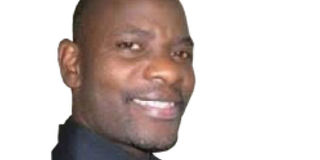National Prayer Breakfast? It is National ‘Pretence’ Breakfast

What you need to know:
National Prayer Breakfast. President Museveni was the chief guest at the National Prayer Breakfast and urged attendees to shun corruption, saying he has never accepted a bribe, but we know that some of his senior Cabinet ministers are very corrupt.
Every October the National Prayer Breakfast is held in Kampala, usually at a ritzy hotel. The event has been organised since 1991 and is held a day before Independence Day, which is marked on October 9.
The notable attendees at the National Prayer Breakfast have (nearly) always been politicians. They pig out on great food in a country where thousands of people still cannot afford enough to eat, deliver rhetoric-filled speeches and hop into their SUVs to return to their offices.
Politicians say they organise this event to “pray for Uganda and renew people’s commitment to God”. But the demonstrable relevance of the National Prayer Breakfast to Uganda is hard to see.
The real problem with prayers is that they never tackle problems. There is no proven way of measuring their efficacy. Prayers do not work like medicine. The organisers of the National Prayer Breakfast would be hard-pressed to demonstrably prove that things have been changing for the better in Uganda since 1991 because of annual prayers.
President Museveni was the chief guest at the National Prayer Breakfast and urged attendees to shun corruption, saying he has never accepted a bribe, but we know that some of his senior Cabinet ministers are very corrupt.
And, as informed Ugandans know, Uganda remains a horrendously corrupt country despite the fact that nearly all its politicians and the people they lead are religious people and pray.
The evidence shows that national prayers and prayers said in the privacy and comfort of our homes do not and cannot reduce corruption, to say nothing of other serious problems Uganda is grappling with.
Transparency International’s Corruption Perception Index (CPI) is arguably the best place to look. The index ranks 180 countries and territories and uses a scale of 0 to 100, where 0 means high corruption while 100 means no corruption.
So how is Uganda faring? Appallingly badly, I am afraid. For seven years, Uganda has not been anywhere near a decent score—and that is not to say it was doing well before.
In 2012, the score was 30; in 2013, the score dropped to 26; in 2014, it was still 26; in 2015, it stood at 25; in 2016, it was still 25; in 2017, it rose to 26; in 2018, it was 26.
You cannot, by any stretch of imagination, call that progress. Yet we continue praying in our homes and in temples, churches, mosques. And we hold the National Prayer Breakfast.
Many people may not know, but countries that do very well on the CPI—the top 10—have little or no religiosity to talk of. They are highly secular, and they include Denmark, New Zealand, Singapore, Finland, Sweden, Switzerland, Norway, Netherlands, Canada, Luxembourg and Germany.
None of what is written here is to suggest that religiosity is the cause of—and worsens—corruption in Uganda. But it really does not solve problems.
When I was reading stories on social media about the National Prayer Breakfast, I remembered a very interesting article the Los Angeles Times published in 2015.
It said societies that are the most religious—where faith in God is strong and religious participation is high—tend to have the highest violent crime rates, while those societies in which faith and church attendance are the weakest—the most secular societies—tend to have the lowest.
The countries that the writer, Phil Zuckerman, cited as having the highest violent crime rates are also some of the most corrupt. They include Nigeria, Uganda, the Philippines, Pakistan and Zimbabwe.
Not surprisingly, countries where corruption is almost non-existent happened to be the same countries with low violent crime rates. Zuckerman named Sweden, Denmark, Norway, New Zealand, Australia, among others.
If prayers really worked, they would solve problems of violent crime and corruption in those countries where people are deeply religious.
Ugandan leaders need to abandon all pretence that they are solving problems by praying. What they are doing can be aptly termed the national pretence breakfast.
The writer is a journalist and former Al Jazeera digital editor in charge of the Africa desk
[email protected]
@kazbuk


